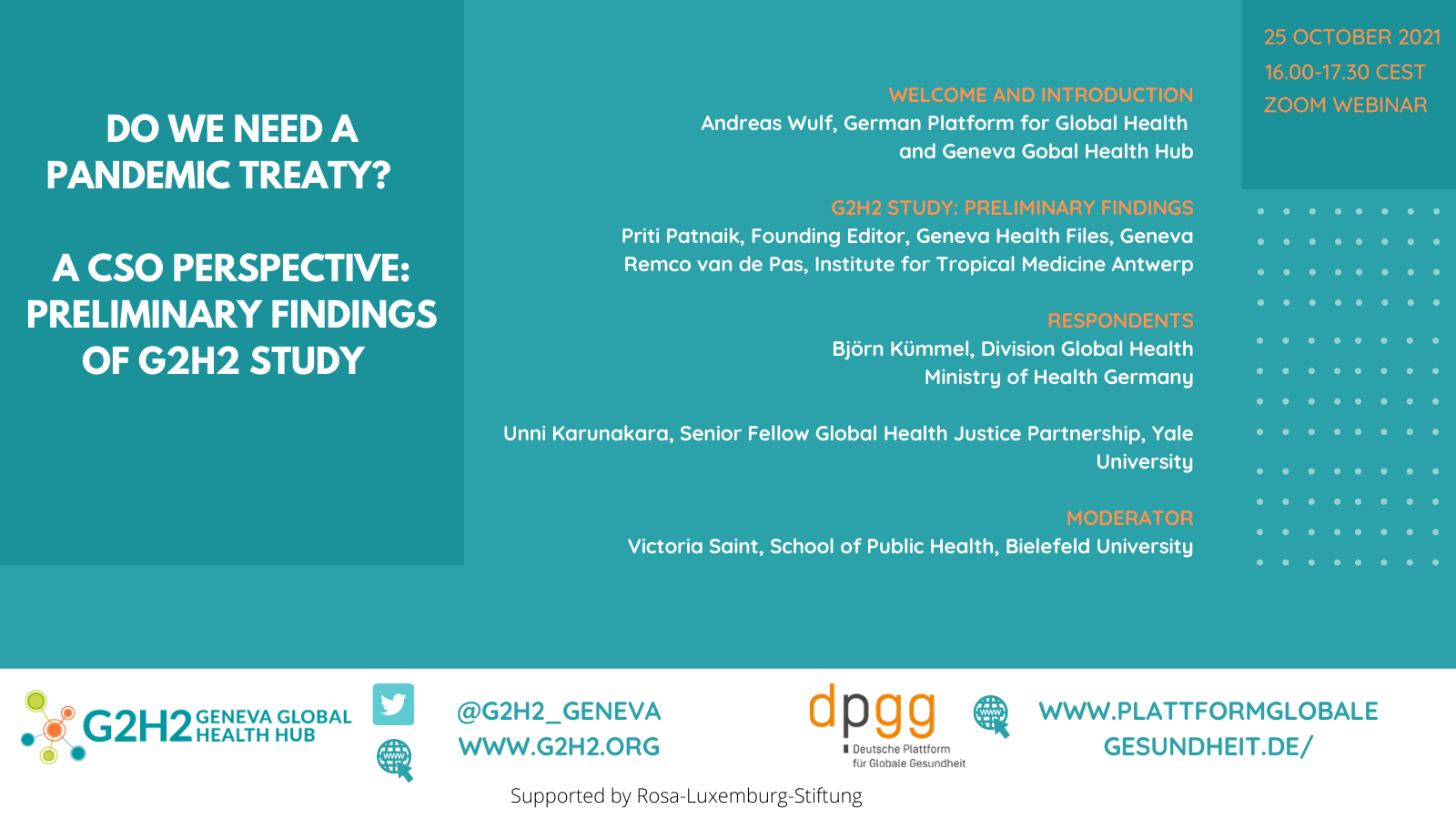
Monday, 25 October 2021
Zoom webinar, 16.00-17.30 CEST
While the world is reeling in the second year under the devastating impact of the COVID-19 pandemic, and the Global South finds itself subjected to the new form of global inequality enshrined in the patently flawed vaccine distribution strategy, a new initiative has been spearheaded by the EU leadership, and supported by the WHO Director General and a relatively small group of countries, to negotiate a pandemic treaty for the future pandemic preparedness and response.
The Geneva Global Health Hub (G2H2) is currently mapping this complex proposal and its ultimate goals and implications in the global health governance through a bottom-up research and advocacy project that aims to involve those who have concretely tackled the response to COVID-19 in countries. The study is also discussing the possibility of alternative governance for the right to health, based on the principles of cooperation and solidarity and focusing on some of the structural pathogens leading to the pandemic.
On the sidelines of the World Health Summit in Berlin, the German Platform for Global Health and G2H2 jointly hosted an online presentation of the preliminary findings of the G2H2 study, prior to its formal launch in Geneva in mid-November, ahead of the World Health Assembly Special Session.
Documentation
- Session recording: Zoom cloud
- Priti Patnaik: Initial findings of the G2H2 research (PPT or PDF)
Background and perspectives
- The Pandemic treaty proposal: seeking accountability after the disaster?
G2H2 policy dialogue, 10 May 2021 - Launch of the G2H2 study, 24 November 2021 in Geneva / via Zoom:
G2H2 website of the launch event: https://g2h2.org/posts/24-november-2021
Programme
Welcome and introduction
Andreas Wulf, German Platform for Global Health and Geneva Gobal Health Hub
G2H2 study on the Pandemic Treaty: Preliminary findings
Priti Patnaik, Editor Geneva Health Files, Geneva
Remco van de Pas, Institute for Tropical Medicine Antwerp
Respondents
Björn Kümmel, Division Global Health, Ministry of Health Germany
Unni Karunakara, Senior Fellow Global Health Justice Partnership, Yale Law School/Yale School of Public Health
Questions and answers, discussion
Session moderated by Victoria Saint, School of Public Health, Bielefeld University
Contacts for enquiries
- G2H2 research and advocacy project:
Nicoletta Dentico, SID - German Platform for Global Health:
Andreas Wulf, medico international
This G2H2 reserarch and advocacy project is sponsored by the Rosa-Luxemburg-Stiftung with funds of the Federal Ministry for Economic Cooperation and Development of the Federal Republic of Germany.

